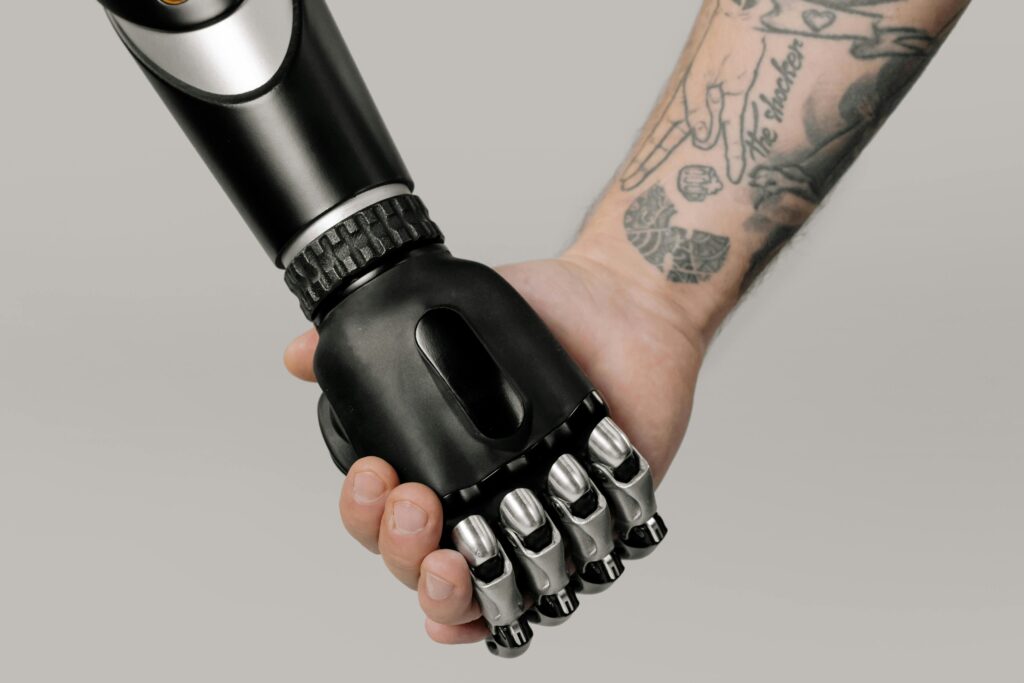Physical Address
304 North Cardinal St.
Dorchester Center, MA 02124
Physical Address
304 North Cardinal St.
Dorchester Center, MA 02124

My journey with you | All you wish will be here !!!

My journey with you | All you wish will be here !!!
Artificial Intelligence (AI) has already begun revolutionizing various industries, from healthcare to finance, and its potential is only set to expand in the coming years. By 2025, AI will not just be a tool used to automate simple tasks but will be integrated into the core operations of businesses, enabling enhanced decision-making, innovation, and efficiency across sectors. In this blog, we will explore how AI will transform industries in 2025 and the profound impact it will have on the workforce, customer experiences, and overall productivity.

By 2025, AI in healthcare will evolve to provide highly personalized treatment plans through precision medicine. Using AI, medical professionals will have the ability to analyze a patient’s genetic data, lifestyle, and environment to recommend the most effective therapies. This advancement will lead to more accurate diagnoses and treatment regimens tailored to individual patients, enhancing recovery rates and minimizing unnecessary side effects.
Robotic surgery will become more advanced, offering higher precision and faster recovery times. AI-driven robotic systems will assist surgeons in performing complex procedures with greater accuracy, minimizing human error, and improving patient outcomes.
By 2025, AI will have revolutionized personal finance through the use of AI-powered financial advisors. These advisors will analyze users’ spending habits, financial goals, and market conditions to offer personalized investment advice, budgeting tips, and savings strategies. AI will make financial services more accessible to the masses, providing affordable, highly accurate guidance that was once reserved for the wealthy.
In the financial sector, AI will be used to enhance fraud detection and risk management. AI algorithms will monitor transactions in real-time to spot fraudulent activity, reducing the chances of financial crimes. With machine learning, AI will constantly learn from data to detect new and evolving threats.
In 2025, AI will be central to the creation of smart factories, where machines, systems, and workers are seamlessly interconnected through the Internet of Things (IoT). AI will help manage production lines with real-time data, predicting equipment malfunctions before they happen and optimizing resource allocation.
AI will enable mass customization in manufacturing. By integrating AI with 3D printing and other advanced technologies, manufacturers will be able to produce personalized products on demand without sacrificing efficiency. This will allow companies to better meet customer demands while maintaining cost-effectiveness.
By 2025, AI will redefine the shopping experience with the introduction of AI-powered shopping assistants. These virtual assistants will interact with customers in real-time, guiding them to products, providing personalized recommendations, and even helping with post-purchase support. Retailers will leverage AI to understand customer preferences, improving overall customer satisfaction.
AI will streamline retail logistics and inventory management, reducing waste and ensuring that popular products are always in stock. AI will monitor real-time sales data, adjusting inventory levels to meet demand and reduce excess stock.
By 2025, autonomous vehicles powered by AI will be commonplace. Self-driving cars, trucks, and delivery drones will reshape the transportation industry, making travel safer, faster, and more efficient. AI will enable these vehicles to make split-second decisions, reducing accidents and traffic congestion.
AI-powered systems will also play a huge role in automated delivery. Autonomous delivery trucks and drones will carry goods across short distances, cutting down delivery times and costs. AI will ensure that goods are delivered on time by constantly adjusting routes and schedules based on current conditions.

AI will drastically transform education by providing personalized learning experiences. By 2025, AI-powered platforms will be capable of adapting to the learning pace and style of each student, providing customized resources and feedback to help students succeed. Teachers will be able to leverage AI to focus on higher-level tasks, such as mentoring and problem-solving, while AI handles the repetitive tasks like grading and feedback.
In 2025, AI will have firmly established itself as a core technology across virtually all industries, transforming how businesses operate, interact with customers, and create products. From healthcare and finance to manufacturing, retail, and education, AI will bring about greater efficiency, cost savings, and personalization. While the technology will continue to evolve, its potential to reshape industries remains undeniable, offering a world of opportunities for businesses and consumers alike.
As AI continues to advance, industries will need to adapt and leverage its capabilities to stay competitive. Companies that successfully integrate AI into their operations will lead the charge in the next era of innovation.
this also answers